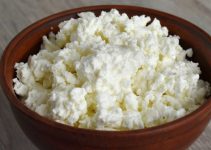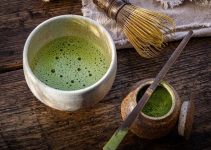Collagen is the most abundant protein in the human body. It is found in our bones, skin, muscles, and organs.
Collagen has been proven to have many benefits for our health and beauty. It can help with healthy weight management by boosting metabolism and reducing appetite. It can also improve skin appearance by making it more supple and youthful-looking.
Collagen also helps to reduce wrinkles on the skin by keeping it moisturized and firm.
The benefits of collagen don’t stop there; it can help with joint pain by strengthening the cartilage that cushions joints and less muscle soreness after a workout or strenuous activity.
However, collagen production in the body begins to decline over the years.
The good news is that you can incorporate collagen through food.
Nutrition Facts
Collagen is considered a complex protein because it contains 19 different amino acids.
These are the primary amino acids present in collagen:
- Proline: helps protect the integrity of blood vessels, improves joint health, and has positive effects on cardiovascular health.
- Glycine: helps build healthy DNA strands, promotes muscle growth and increases energy during physical activity.
- Glutamine: helps prevent anxiety, insomnia and lack of concentration. It also stimulates digestive health and improves the immune system. According to a report, glutamine has a positive effect on the production of growth hormone.
- Arginine: Arginine is converted to nitric oxide upon entering the body, which is good for arterial health. In addition, arginine stimulates blood circulation and helps strengthen the immune system.
Health Benefits
1. Improves Health of Skin and Hair
According to studies, the daily consumption of 2.5 – 5 grams of collagen hydrolysate helps improve skin health in women between 35 and 55 years of age.
In addition, collagen helps reduce cellulite and stretch marks.
2. Reduces Joint Pains and Degeneration
The consumption of collagen helps the joints move more quickly and without pain.
In addition, a study found that collagen helps treat osteoarthritis and other joint problems.
According to research, type 2 collagen supplements serve as a treatment for rheumatoid arthritis patients.
3. Helps Remedy Leaky Gut
One study found that collagen concentrations decreased in patients with inflammatory bowel desire.
Thus, the consumption of collagen helps people with leaky gut because it helps absorb water in the intestine, which allows bowel movements to function normally.
4. Boosts Metabolism, Muscle Mass, and Energy Output
Studies have found that glycine helps the digestive system and the nervous system.
In addition, another study found that arginine helps repair muscle tissues, heal wounds and accelerate metabolism, among others.
5. Strengthens Nails, Hair, and Teeth
Collagen helps nails stay strong and prevents hair loss.
In fact, one study found that collagen helps follicular hair regeneration.
6. Improves Liver Health
Glycine helps minimize liver damage by absorbing toxins and foreign substances.
According to research, glycine can help reduce liver damage caused by alcohol consumption.
7. Protects Cardiovascular Health
Proline helps strengthen the arterial walls and reduce fat accumulation in the arteries.
This way, it prevents the risk of arteriosclerosis and improves cardiovascular health.
In addition, arginine helps produce nitric oxide, which improves blood circulation.
Types
There are at least 16 different types of collagen in the human body.
These are the best types of collagen:
- Type 1: it is very important for the elasticity of the skin, healing wounds and keeping the tissues together.
- Type 2: it helps prevent age-related joint pain and arthritis symptoms.
- Type 3: also helps to give elasticity and firmness to the skin. In turn, it is good for the formation of blood vessels and heart tissues.
- Type 4: This type of collagen helps form the basal lamina, which is necessary for blood and nerve functions.
- Type 5: it is necessary to make the surface of the cells, the hair strands and the tissue that form in the placenta of women.
- Type 10: according to studies, it is beneficial in healing bone fractures and repairing synovial joints.
Sources
These are the different sources of collagen:
- Bovine: is made mostly of type 1 and type 2 collagen.
- Chicken: it is mainly type 2, so it helps the build of cartilage.
- Fish: it is mostly type 1 collagen and is easily absorbed.
- Egg: this collagen is mainly type 1, 3, 4 and 10.
Collagen Peptides
Collagen peptides contain the same amount of amino acids and nutrients as collagen but undergo hydrolysis, breaking it down into shorter protein chains.
Thus, it is easier for your stomach to digest. The best thing is that having the same properties as collagen also helps improve skin and hair health, reduce joint pain, and improve intestinal health.
Collagen Supplements
There are different types of collagen supplements that come both in powders and capsules.
Collagen peptides are a great option because they have shorter chain lengths, are versatile, and high bioavailability.
How To Use
The main ways to consume more collagen are:
- Make broth with bone broth.
- Use protein powders made from bone broth.
- Take collagen supplements.
- Eat a healthy diet that helps you absorb the collagen peptide you consume.
Collagen vs. Gelatin
When collagen breaks down, it turns into gelatin.
For that reason, gelatin is good for health, as well as helping the easy digestion of food.
In other words, gelatin has the same beneficial effects as collagen but in another form.
Side Effects
The side effects of collagen are not common.
It only generates adverse effects in people who consume it with pre-existing allergies.
For example, if you are allergic to fish, you should check the label on supplements to avoid products made from fish collagen.





